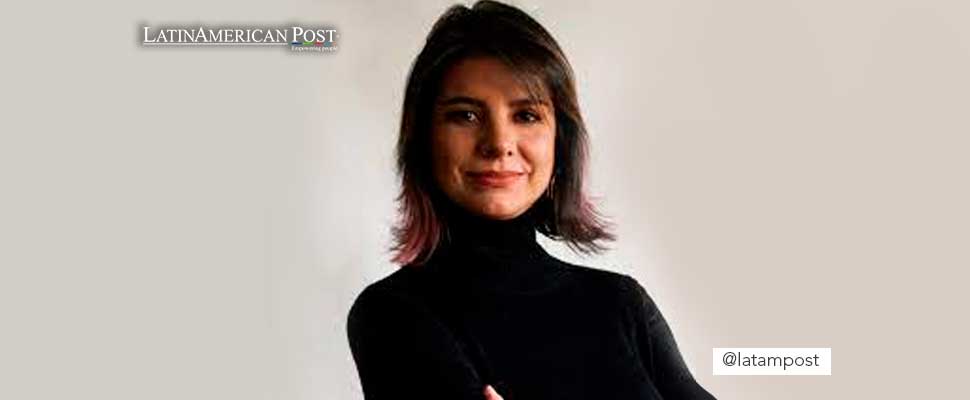Interview: How to Focus on Your Well-Being as a woman?
We spoke with Carolina Alonso, author of " Sé la heroína de tu propia historia y desencadena tu poder creador" about the importance women´s well-being.

Carolina Alonso, tells us about the importance of well-being in women. Photo: mundodelibros.com
LatinAmerican Post | Vanesa López Romero
Listen to this article
Leer en español: Entrevista: ¿Cómo enfocarte en tu bienestar siendo mujer?
LatinAmerican Post: What is the heroine-creator?
Carolina Alonso: It is an archetype that I configured. The archetypes are forms of operation of our psyche, what I did was recognize this archetype , give it a name and bring it to light with some characteristics. This form is a character, normally it is a woman, as this book is aimed at women. But it doesn't necessarily have to be a woman. It is a person who has characteristics that are described in the book and whose life story has a shape that one can identify.
LP: Do you somehow respond to the hero's journey?
CA: It is a form of hero's journey. It has some particular challenges. The heroine-creator tends to identify herself as different at a very young age . She realizes that she does not end up fitting in or belonging to any space. When you are young you need to belong to something to survive, so the heroine-creator will hide her true identity and will try to fit in, she will put on different costumes.
Also read: Interview: How can I support my relative who came out?
The real heroine journey begins when wearing all these costumes and behaving as she is supposed to behave becomes very difficult . That is when the call begins, and you will have to face a process of crisis and a process of mourning and reconfiguration to realize who you really are and accept that identity.
LP: Why did you decide that your recipient is a female figure in this book? Why focus on a woman?
CA: For two reasons. First , I am a heroine-creator, I am a woman, so I can speak easier from my experience . Second, throughout my life I have met many women who have gone through processes similar to mine. I have identified this form in many women around me and in many women in general. In addition, I believe that this type of heroine has a function in life, and that is that it comes to heal something in the community to which it belongs. You do this whole trip not to unleash your creative power and then be famous and create your company, no. It is because you have a social function in the communities to which you belong, then you come to heal something . When I say heal I do not mean that you should be a healer or a therapist. You can be a lawyer and have suffered injustice in different ways. Your role will be to heal the injustice to which you belong.
I believe that at the moment in which we are historically, women have a very important role to fulfill . Women are waking up faster. Our natural tendency is to care, and when we see what is happening, that desire to care, to communicate and reestablish the connection is awakened. As women we need to realize who we are, assume it and assume the role that we all have with the society to which we belong.
LP: In the book you talk about sensitivity and empathy. We know that in society what you call the natural tendency to care normally is taken as something that implies that women are passed over. There is an idea of fulfilling a maternal role that all women supposedly have due to the fact that they are women, but in the long run this is problematic, since it perpetuates gender violence and the patriarchal hierarchy. Do you think there is a middle ground? Which?
CA: I believe that sensitivity develops. We have to train sensitivity. The heroine-creators have a greater disposition to feel and from that acute sensitivity they can be more empathetic . Sure, the trap we can fall into is believing that being empathic means taking responsibility for the lives of others. That is not true. I can listen to you as a mother, as a therapist, as a friend and I can empathize with you and accompany you. But I don't have to solve your problems, or assume that for you to be happy I have to accept something.
That is one of the great traps that women in general can fall into. Empathy ends up becoming a burden and overwhelms you. The best way out of this is to recognize in the other the capacity that they have to take charge of themselves. Part of our worth as women we have put in the fact that we feel needy. When I start to empower others, then they don't need me that much anymore , and that's wonderful, but sometimes we don't understand it that way.
LP: In the book you also speak of a spirituality that is not necessarily linked to a dogma or religion. How can a person interested in growing in their well-being and self-care from spirituality access it without having to approach a dogma?
CA: This requires an examination of conscience and beginning to see clearly what is believed. The heroines-creators usually have this conflict early in their life because there is something with the punishing god and that loves conditionally that does not quite fit. We all have a different feeling of god. We tend to have a conflict not with God, but with the idea that has been imposed on us of God .
We must ask ourselves questions. It is very important to know what we believe in, because it defines the way of seeing life, others and even myself. It is a fundamental question in the sense of foundation and origin.
LP: How much do you think the well-being of women has been relegated in an obviously patriarchal and heteronormative society and also in a health system that responds to that society? Do you think that it has been relegated in the culture of self-care that we live today?
CA: I think we are beginning to understand that there are differences and that these differences do not imply hierarchies . In principle, women should also go out to name and say what well-being means for us. The heroine-creators must go out and name those injustices and look for ways to change it.
We are beginning to move in that direction. Now we need to demand it and create it. The majority of people who manage human resources are women, where is their role in defining well-being conditions for women? I believe that women have been very concerned about achieving positions of greater influence or greater decision-making power, but we are not using that power to our advantage .
I believe that in the end all this has to do with our understanding that we are not in life only to pursue individual well-being, personal achievement and self-satisfaction. We all have a social function that we need to assume and that is what it is about going from self-centeredness to a much more united, integrated and community world.




